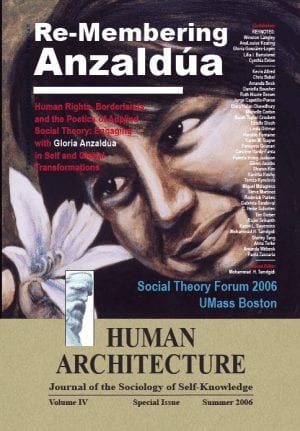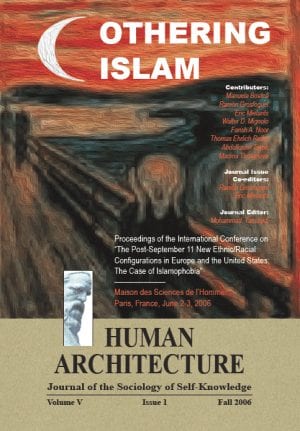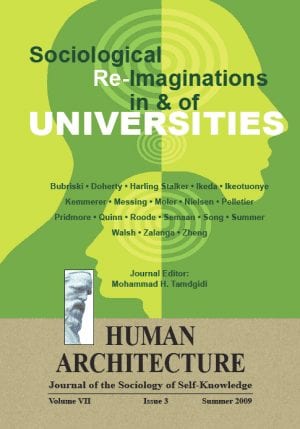Journal Article — Finding the Center: Constructing the Subaltern Master Narrative — by Glenn Jacobs
$15.00
In clarifying the meanings of the notion in use, and in comparing Spivak’s and Gramsci’s use of the term, I wish to frame an expanded space within which a “subaltern master narrative”–that is, a broad intellectual perspective encompassing a theoretical grasp of the subaltern’s social and historical context as it bears on the possibility of action-can be, and actually has been, constructed.
Description
Abstract
In clarifying the meanings of the notion in use, and in comparing Spivak’s and Gramsci’s use of the term, I wish to frame an expanded space within which a “subaltern master narrative” –that is, a broad intellectual perspective encompassing a theoretical grasp of the subaltern’s social and historical context as it bears on the possibility of action-can be, and actually has been, constructed. I conclude that Gloria Anzaldúa’s transculturated master narrative in its method of construction, in its substantive hybridization and fusion of European and indigenous cultural elements, in its representation of the lives and dilemmas of oppressed people–women, Mexican Americans, blacks, gays and lesbians–and in its valorization of the acts of reflexive sympathetic introspection and of representation, and, in turn, by its connection with social action, truly fulfills Gramsci’s criterion of the construction of a new hegemony and the transformation of the subaltern as well as the standard of authenticity implied in Spivak’s answer to her question. Yes, the subaltern can and does speak!
Recommended Citation
Jacobs, Glenn. 2006. “Finding the Center: Constructing the Subaltern Master Narrative.” Pp. 79-86 in Re-Membering Anzaldúa: Human Rights, Borderlands, and the Poetics of Applied Social Theory: Engaging with Gloria Anzaldua in Self and Global Transformations (Human Architecture: Journal of the Sociology of Self-Knowledge: Volume IV, Special Issue, 2006.) Belmont, MA: Okcir Press (an imprint of Ahead Publishing House).
The various editions of Re-Membering Anzaldúa: Human Rights, Borderlands, and the Poetics of Applied Social Theory: Engaging with Gloria Anzaldua in Self and Global Transformations can be ordered from the Okcir Store and are also available for ordering from all major online bookstores worldwide (such as Amazon, Barnes&Noble, and others).
Read the Above Publication Online
To read the above publication online, you need to be logged in as an OKCIR Library member with a valid access. In that case just click on the large PDF icon below to access the publication. Make sure you refresh your browser page after logging in.








